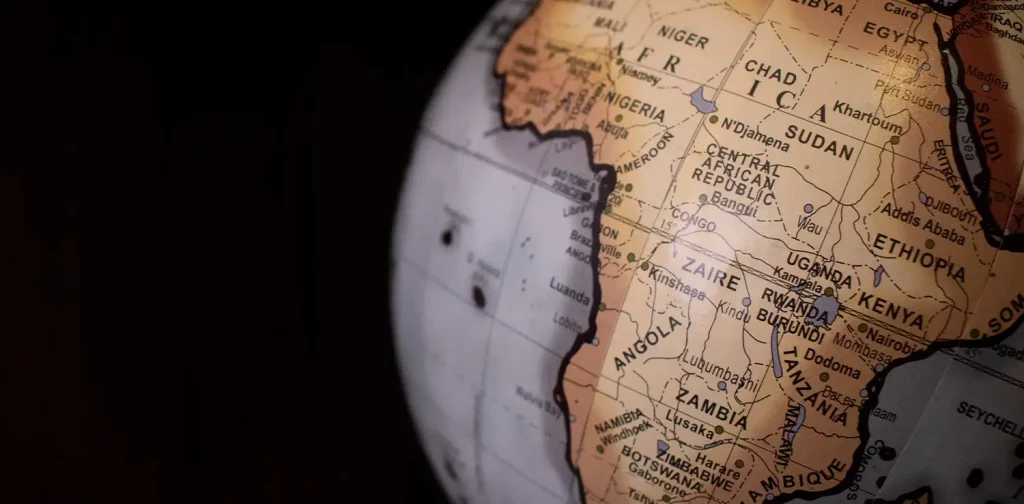Strengthening Research Platform on Climate Science in Developing Countries

Photo by James Wisman on Unsplash.
Climate science exists to control mitigation and adaptation action to environmental and natural disaster risks. However, the distribution of climate science in the real world is far from inclusive. So, it is not surprising that countermeasures of climate change in the global south are lacking.
Studies on the Climate Science Gap
According to the Journal of Environmental Research, climate change phenomena require scientific information to support policy and solutions. Scientific attributes measure environmental risks and climate change in different countries and regions. Unfortunately, most countries in the world do not have a proper system that contains weather tracking and high-quality data.
A study published on Nature Climate Change revealed the climate science gap by looking at scientific papers on climate change worldwide. Among the 100,000 examined, only about 10,000 studies were about Africa. Meanwhile, there were nearly 30,000 papers about North America.
Dr. Caroline Wainwright from Grantham Institute, Imperial College London, discovered the holes in climate studies between Europe and Africa. She found that Europe was far more investigated than Africa, resulting in the lack of big picture solutions suitable for Africa’s climate.
Professor Namita Chakma from the University of Burdwan seconded this observation. She found that the lack of scientific climate development causes India’s improper long-term mitigation and adaptation policies.
Causes and Barriers
There are several barriers for scientists in developing countries. One of the main problems is related to public financing to support research development. For instance, there is no feasible space for scientific research in the Global South. So, most scientists lack access to resources such as prestigious journals and good literacy in climate science.
Furthermore, the visa requirements in the Global North make researchers across developing countries have trouble attending academic conferences and study visits. Although some global funding from developed countries already exists in third nations, the privileges researchers from the Global North have over their Global South counterparts are still glaringly obvious.
Bridging the Gap
Climate change challenges keep getting more and more significant as time passes, so proper solutions to bridge the science gaps through inclusive climate research are critical. Here are some instruments to assist the research platform on climate science in Global South, according to Dr. Christopher Trisos, a researcher from the African Climate and Development Initiative in Cape Town and the Environmental Protection Agency in the US:
- Set proper research areas for climate change
- Provide global financing to produce research grants and engagement
- Supply inclusive access to publications, infrastructure, and technology
- Design featured research topics on climate change with multidisciplinary sciences
Understanding the scientific approach to climate change is an important path to a better future for people and the planet. Through research and scientific instruments, decision-makers and other relevant stakeholders across the globe could produce effective evidence-based policies for sustainable development.
Editor: Nazalea Kusuma
Nor Anisa
Anisa is a Reporter at Green Network Asia. She graduated from Mulawarman University with a bachelor's degree in International Relations. She is a part of the YSEALI Academic Fellowship on Environmental Issues and Natural Resources Management at East West Center.

 Test Custom Feature Image
Test Custom Feature Image  Electric Vehicles Roam the Roads of Kenya
Electric Vehicles Roam the Roads of Kenya  FedEx Engages Employees with Beach Clean-Up Initiative
FedEx Engages Employees with Beach Clean-Up Initiative  Come Back Stronger: Building Philippines’ Resilient Economy Post-COVID-19
Come Back Stronger: Building Philippines’ Resilient Economy Post-COVID-19  Inside Experian’s Sustainability Journey: An Interview with Chief Sustainability Officer Abigail Lovell
Inside Experian’s Sustainability Journey: An Interview with Chief Sustainability Officer Abigail Lovell  5 Food System Actors That Have Taken the 123 Pledge to Reduce Food Loss & Waste
5 Food System Actors That Have Taken the 123 Pledge to Reduce Food Loss & Waste  Test premium post
Test premium post